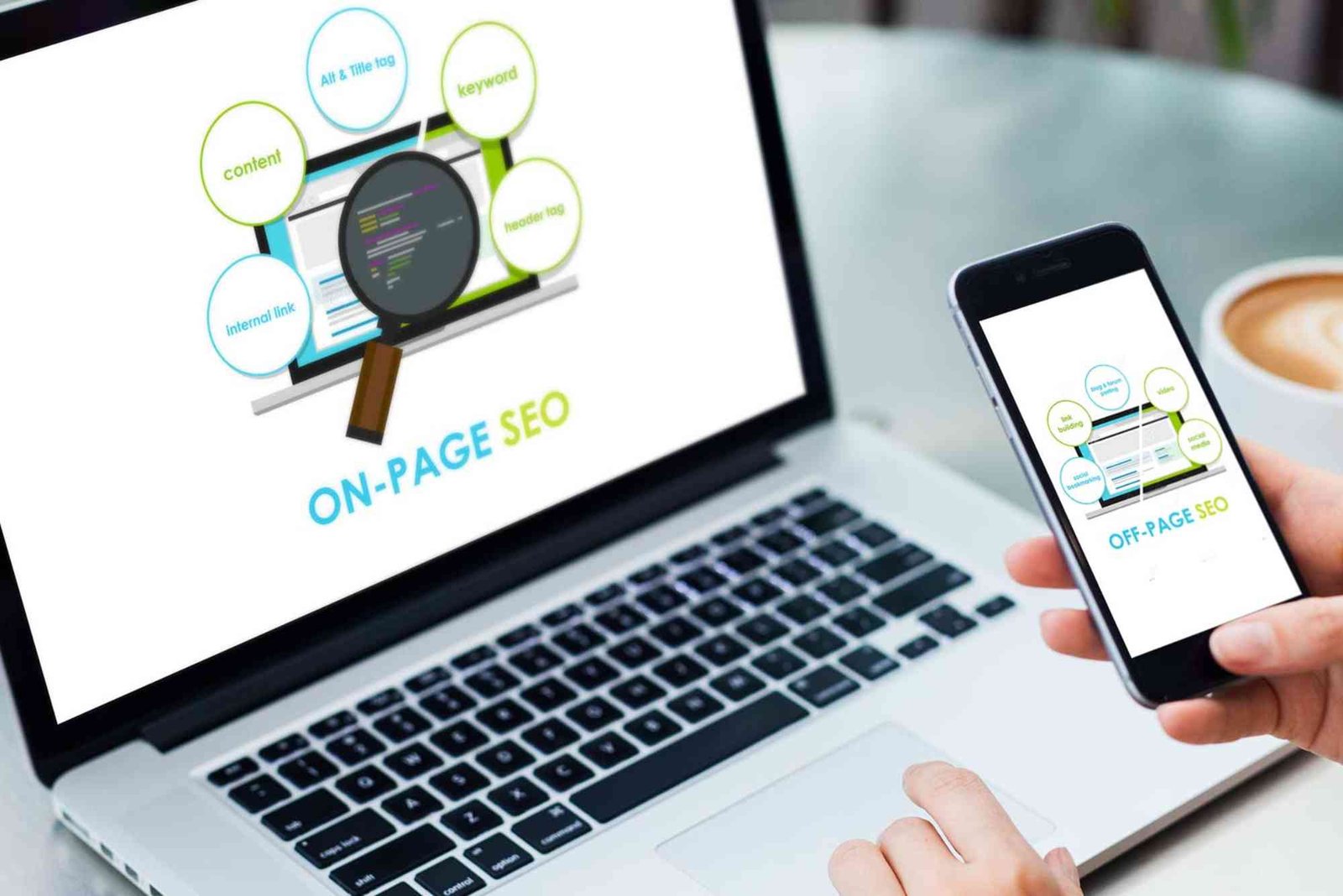What Is SEO in Digital Marketing — Practical Tips and Expert Advice
In today’s competitive online world, businesses can’t thrive without a strong digital presence. One of the most effective strategies to achieve that presence is SEO — Search Engine Optimization. But what is SEO in digital marketing — practical tips and expert advice can help you understand how it works, why it’s crucial, and how to apply it effectively to grow your business.
SEO, simply put, is the process of optimizing your website to appear higher in search engine results. Whether you run an e-commerce store or a blog, SEO drives visibility, traffic, and conversions. It’s the art and science of aligning your content with search engines like Google, ensuring your brand is discoverable when users search for relevant topics.
Understanding What SEO Means in Digital Marketing
Search Engine Optimization is the backbone of digital marketing. It’s about helping search engines understand your content so that your website ranks better. You can explore more on this topic through the link What Is SEO available at breezynote.com/what-is-seo-in-digital-marketing-practical-tips-and-expert-advice.
SEO includes a combination of on-page and off-page strategies — such as keyword research, content optimization, link building, and technical SEO. The goal is to improve visibility organically without paying for ads.
Why SEO Is Vital for Every Digital Business
Organic search is often the largest source of website traffic. When users trust your brand through high search rankings, you build credibility and long-term success. Unlike paid ads, the results of SEO last longer and create a stable flow of traffic.
The Core Components of SEO in Digital Marketing
SEO has three key pillars: On-Page SEO, Off-Page SEO, and Technical SEO. Each plays an essential role in boosting your website’s ranking and user experience.
On-Page SEO: The Foundation of Optimization
On-Page SEO involves optimizing individual pages on your website to rank higher. This includes:
-
Keyword optimization: Use relevant and high-intent keywords naturally within your content.
-
Meta tags: Include unique meta titles and descriptions for every page.
-
Content quality: Provide value that matches the searcher’s intent.
-
Internal linking: Link to relevant pages like What Is SEO In on breezynote.com/what-is-seo-in-digital-marketing-practical-tips-and-expert-advice to enhance site structure.
-
User experience: Make sure your website is mobile-friendly and loads quickly.
Off-Page SEO: Building Authority and Trust
Off-Page SEO focuses on actions taken outside your website to improve authority. The most powerful of these is backlink building. Getting quality backlinks from reputable websites signals to Google that your site is trustworthy. For expert strategies, you can Read more on www.hubspot.com.
Technical SEO: The Hidden Power Behind Rankings
Technical SEO ensures your website is optimized for crawling and indexing by search engines. This includes:
-
Improving site speed and security (SSL certificates)
-
Fixing broken links and duplicate content
-
Creating XML sitemaps and optimizing robots.txt
-
Ensuring mobile responsiveness
When done right, technical SEO enhances both user experience and search visibility.
Practical Tips to Master SEO in Digital Marketing
To apply SEO effectively, you must combine strategy, consistency, and data analysis. Here are some practical tips for beginners and professionals alike.
Conduct Thorough Keyword Research
Keyword research helps you identify what your target audience is searching for. Use tools like Google Keyword Planner, Ahrefs, or SEMrush to find relevant keywords. Focus on long-tail keywords that reflect user intent.
Create Quality, Original Content
Google rewards websites that publish fresh, valuable, and original content. Write in-depth blogs, guides, and tutorials that answer user queries. Use your main keyword — what is SEO in digital marketing — practical tips and expert advice — naturally throughout your content.
Optimize Meta Tags and Headers
Meta titles, descriptions, and header tags help search engines understand your content structure. Keep meta titles under 60 characters and descriptions under 150 characters for the best display on search results.
Build High-Quality Backlinks
Focus on earning backlinks from trusted sites in your niche. Guest posts, partnerships, and digital PR campaigns are effective ways to build authority.
Use Analytics to Measure Success
Track your SEO progress using Google Analytics and Search Console. Monitor traffic, bounce rates, and conversions to adjust your strategies accordingly.
Keep Up with Google’s Algorithm Updates
Search algorithms constantly evolve. Stay updated with Google’s latest updates to maintain your rankings. Follow industry experts and learn from credible platforms like HubSpot.
Expert Advice to Elevate Your SEO Game
SEO isn’t just about keywords — it’s about creating value. Experts recommend a holistic approach that prioritizes user intent, technical excellence, and credibility.
Focus on User Intent
Every search query has intent — informational, navigational, or transactional. Understanding this helps you tailor your content accordingly.
Improve Site Experience
A fast-loading, visually appealing, and easy-to-navigate website keeps users engaged longer. This indirectly boosts your ranking signals.
E-A-T: Expertise, Authoritativeness, and Trustworthiness
Google prioritizes content that demonstrates expertise and authority. Cite credible sources, include author bios, and maintain transparency to establish trust.
Common SEO Mistakes to Avoid
Even small mistakes can hurt your SEO efforts. Avoid these common pitfalls:
-
Keyword stuffing or using irrelevant keywords
-
Ignoring mobile optimization
-
Neglecting internal linking
-
Publishing low-quality or duplicate content
-
Skipping analytics tracking
How to Combine SEO with Other Digital Marketing Strategies
SEO works best when integrated with content marketing, social media, and paid campaigns.
SEO + Content Marketing
Your content is the fuel that drives SEO. What Is SEO Blogs, videos, and infographics increase engagement and attract backlinks.
SEO + Social Media
While social media doesn’t directly affect rankings, it amplifies visibility and drives traffic. Share your optimized content across platforms to boost awareness.
SEO + Paid Ads
Running PPC alongside SEO gives immediate visibility while your organic strategy grows. Over time, you can reduce ad spending as organic traffic increases.
Future Trends of SEO in Digital Marketing
SEO is evolving with new technologies and user behavior. Here’s what to expect in the coming years:
Voice Search Optimization
With smart speakers rising in popularity, voice-based queries are growing. Optimize your content for conversational keywords and natural language.
AI and Machine Learning
Google uses AI tools like RankBrain to understand context and intent. Focus on creating meaningful, user-centered content that matches these AI systems.
Visual Search and Video SEO
Visual content continues to dominate. Optimize your images and videos with proper tags, captions, and keywords.
FAQs — What People Also Ask
What is SEO in simple terms?
SEO means making your website easy for search engines like Google to find and understand. It helps people discover your site when they search online.
How does SEO work in digital marketing?
SEO works by optimizing your website’s content, structure, and authority so that search engines rank it higher for relevant keywords.
Why is SEO important for business?
SEO increases online visibility, builds credibility, and attracts potential customers without paid ads. It’s a sustainable way to grow your business.
How long does it take for SEO to show results?
Typically, you can expect to see results within 3–6 months, depending on your competition and consistency.
What tools are best for SEO beginners?
Google Analytics, Ahrefs, SEMrush, and Moz are great starting points for keyword research and performance tracking.
Your Path to SEO Success
Now you understand what is SEO in digital marketing — practical tips and expert advice. Implementing SEO may take time, but it’s the most effective way to build a lasting online presence. By focusing on quality content, user experience, and data-driven decisions, you can achieve long-term success.
Ready to enhance your visibility and attract more customers? Start optimizing your website today and see your digital marketing results transform.
For deeper learning, revisit What Is SEO and What Is SEO In for expert insights.












